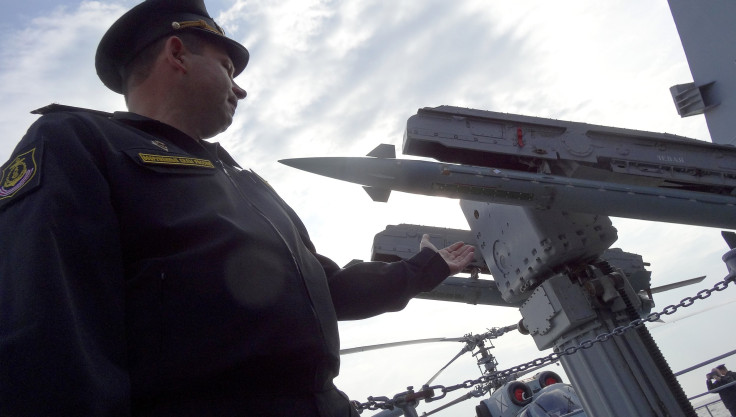The Cost Of Fighting Terrorism: Russia's Anti-ISIS War Is $8M Per Day, Doubling After Downing Of Su-24 Jet By Turkey

The cost of the Russian military campaign in Syria against the Islamic State group and Syrian rebels has doubled over the past six weeks from $4 million a day to $8 million. It's thought that costs soared in the aftermath of the downing of the Russian Su-24 fighter by a Turkish F-16 Nov. 24, according to a report from the Anadolu Agency, a state-run press organization in Turkey, which cited analysis from a U.K.-based military think tank.
Each hour of flight costs about $12,000 for a military jet and $3,000 for helicopters, according to the report, which the Royal United Services Institute released last Friday. Russian military aviation is estimated to be spending $710,000 a day, assuming that each combat aircraft flies on average 90 minutes, and each helicopter an hour, according to the report.
About $750,000 is spent daily on ammunition. Other military spending is calculated at $440,000 per day. Operations by warships in the Mediterranean Sea cost $200,000 per day. Adding logistics, communications and intelligence expenses to the list tacks on another $250,000 per day, the report noted.
The Russian government has estimated that operations are to last another year, which means the cost of the total intervention could reach a little under $3 billion. This is a large outlay for a country in recession and whose financial reserves are being repeatedly stretched by financial turmoil within its borders. Russian Finance Minister Anton Siluanov said this month that about half of the country’s $80 billion in reserves has already been spent to cover the government’s budget deficit and guard against the falling price of oil, which dropped to around $36 a barrel this week.
Russia has been militarily involved in Syria since late September, providing authoritarian Syrian President Bashar Assad's army with new weapons and tactical advice. However, just a few weeks later, Russian military jets began hitting the Islamic State group, aka ISIS, alongside U.S.-led coalition airstrikes, although the two former Cold War foes have not been operationally cooperative.
Moscow's jets were also targeting Syrian rebels, who were being funded by the U.S. at the time. The move added to the strained relations between Moscow and Washington that began with the 20-month conflict in Ukraine. While there is a desire to work together on defeating ISIS, the two sides are seemingly unable to agree on what should be done with Assad. Russia supports the dictator, while the West does not.
© Copyright IBTimes 2024. All rights reserved.












